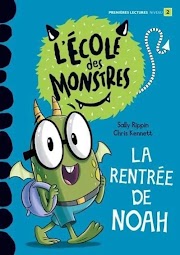Cultivating Superb Writers
I am sharing my love of the written word as a part of the Superb Writers’ Blogathon. In partnership with Grammarly grammar checker, this series is bringing valuable hints to aspiring superb writers all across the world wide web. These are my top tips for helping your students to become successful writers.
I believe that different methods may work better for different writers, but students need to be willing to try each method a few times to give it a fair shot. For me, messy scribbles all over a page, preferably with a little colour-coding work best. I recently heard that some teachers of tweens and teens are encouraging Twitter as a tool for drafting written work, as it keeps the messages short and simple. As long as the student understands what he or she meant when the points were written, then anything goes when it comes to capturing ideas quickly!
 Writing is a process. It does take time. Teachers usually keep this in mind and will often try to help students to understand by breaking a writing task into smaller steps or subtasks. My students sometimes only pay attention to the final date that something is due, and feel it's okay to work at a snail's pace since I've given them so much time. Leaving enough time to make any revisions and improvements needed, as well as to take a little break from the piece of writing to be able to proofread it more effectively is super
Writing is a process. It does take time. Teachers usually keep this in mind and will often try to help students to understand by breaking a writing task into smaller steps or subtasks. My students sometimes only pay attention to the final date that something is due, and feel it's okay to work at a snail's pace since I've given them so much time. Leaving enough time to make any revisions and improvements needed, as well as to take a little break from the piece of writing to be able to proofread it more effectively is super improtant important.
(See what I mean?)
 Students shouldn't have to worry about total precision in their written expression. That means we can't suggest that they make so many corrections at once that they will feel like their work has to be perfect. Accuracy in their expression and word choice will come with time. As the old saying goes, practice makes perfect. Personally, I've been hearing more and more often at educational workshops the term "fluency follows fluidity." This usually refers to oral communication, but it is clearly true for written communication as well. Get the students to write. Get them to write a lot, in sustained chunks, and competency will follow.
Students shouldn't have to worry about total precision in their written expression. That means we can't suggest that they make so many corrections at once that they will feel like their work has to be perfect. Accuracy in their expression and word choice will come with time. As the old saying goes, practice makes perfect. Personally, I've been hearing more and more often at educational workshops the term "fluency follows fluidity." This usually refers to oral communication, but it is clearly true for written communication as well. Get the students to write. Get them to write a lot, in sustained chunks, and competency will follow.
What are your favourite tips to help your students grow into better writers?
Brainstorm & Plan
I find many of my students want to skip this step in the writing process. It's so crucial though to think about what you want to write and to capture your ideas in the simplest terms possible.I believe that different methods may work better for different writers, but students need to be willing to try each method a few times to give it a fair shot. For me, messy scribbles all over a page, preferably with a little colour-coding work best. I recently heard that some teachers of tweens and teens are encouraging Twitter as a tool for drafting written work, as it keeps the messages short and simple. As long as the student understands what he or she meant when the points were written, then anything goes when it comes to capturing ideas quickly!
Leave Time to Edit/Proofread
(See what I mean?)
Perfection Not Required
Don't let mistakes keep you from writing! Or even worse - don't let a fear of making mistakes keep you from writing. Again, writing is a process, and there is time to change things, reorganize things, or even to scratch some things out and start over.
Read, read, and read
Students who read often, and are engaged when they do, will develop better vocabularies and be more likely to be comfortable writing in different forms for different purposes. They will be more confident experimenting with varying their sentences and trying to achieve different effects that they learn. Remember that reading does not have to just be of the silent variety with a novel. Variety is key! Don't be afraid to encourage the use of technology in reading, as well as in writing. One of the reasons I love my Sony eReader (which apparently is no longer available to buy) is that it has a built in dictionary and thesaurus. When I'm reading, if I find a word with which I'm unfamiliar, then I just double tap the word and can instantly better understand what I am reading.What are your favourite tips to help your students grow into better writers?








